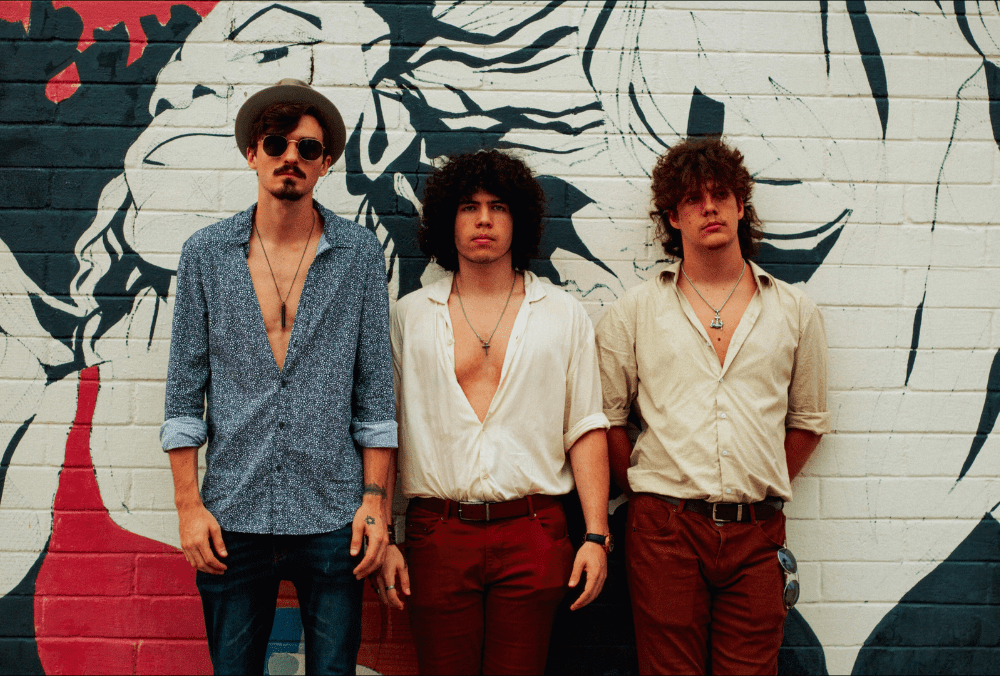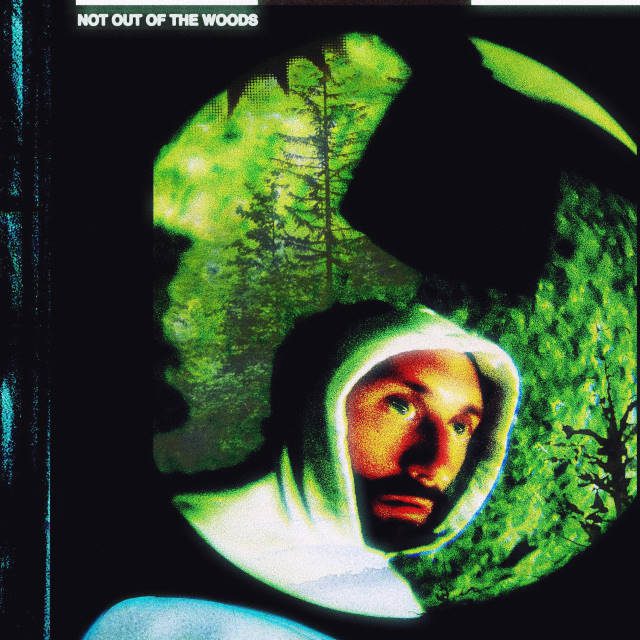
Waxahatchee on success and sobriety: ‘You don’t have to be tortured to make interesting art’
Katie Crutchfield, the artist better known as Waxahatchee, is at home and relaxed in Breeders T-shirt and cardigan, her hair piled up high around her headphones. She is feeling reflective about the decade so far. “There’s a lot more room for happiness in my 30s – it’s really interesting. I wake up every day and I’m like: ‘I’ve changed.’” She lets slip a rueful chuckle. “I’m different now.”
Crutchfield, 35, credits the shift to maturity, sobriety and success – although, she makes clear, they are all linked. Having played in bands since she was a teenager in Alabama (often with her twin sister, Allison), Crutchfield broke through to the mainstream with Saint Cloud: her fifth album as Waxahatchee, and one of the most acclaimed of 2020. Released in March of that year, Crutchfield’s collection of introspective, country-tinged indie rock songs – about her 2017 decision to quit drinking, and exploring her newly sober self – resonated with listeners getting to know themselves again during lockdown.
After restrictions lifted, Crutchfield took a delayed victory lap, touring Saint Cloud for 18 months. In October 2022, she released an album with fellow singer-songwriter Jess Williamson as Plains. Now, after a lowkey year at home (shared with her partner and occasional collaborator, musician Kevin Morby), Crutchfield is gearing up to release a new album.
Although it’s her sixth full-length release as Waxahatchee, Tigers Blood feels in some ways like a student project. “This one’s going to be a bit of an experiment,” she says. “On Saint Cloud, I was pretty unplugged, but I think I’m really unplugged now. How I’ve insulated myself – it’s like I keep levelling that up.”
Crutchfield is referring to the boundaries she’s developed over the last three years – insulating herself not only against drugs and alcohol, but also the distractions and drains on her energy as an artist and a human being.
Tigers Blood is more outward-looking than its predecessor, without an overarching narrative. Saint Cloud had “such a neat little bow on it: ‘This is an album about someone getting sober,’” Crutchfield says, ironically. That’s a simplification, she adds – but the narrative was certainly picked up and cemented by the press.
As she often felt moved to clarify in interviews, Crutchfield’s issues with alcohol and drugs were “never anything crazy”; nevertheless, sobriety was a new and rich terrain to mine for songs. Often, on Saint Cloud, Crutchfield is in conversation with herself, processing her history of codependency and addiction and – as on the transcendent Fire – coaxing herself towards feeling self-compassion.
As a songwriter, Crutchfield has always been drawn to the interior, sometimes even creating “two Katies in conflict with each other”. Now five years sober, she has a different relationship to herself and her work. “That was something that was really on my mind: it’s not the shiny, new glow-up sobriety that everybody thinks about – now I’m in it,” she says.
When she quit drinking and moved to Kansas City to be with Morby – having spent her life touring and bouncing between her home town Birmingham, Brooklyn, Philadelphia and Long Island – a friend warned her that she wouldn’t recognise herself for a while. “That was really true,” says Crutchfield. “Now it’s like: ‘OK, I fully know myself sober.’”
There are still days when she struggles, but generally, she says, “I feel very steady.” Tigers Blood finds Crutchfield self-assured – her songs take the temperature of this more clement “season of my life”, she says.
“They’re not all love dramas. There’s a lot of stuff, still, about addiction, and specifically about being in a relationship with other addicts – but there are also songs about how I feel about being in the music industry, and the culture at large.”
Bored, for instance, is about her mounting frustration with a longtime friend: Crutchfield’s voice, restless and grumbling about “toeing the line”, climbs to a howl for the chorus: “My benevolence just hits the floor / I get boooooooooored.”
The song reflects her experience of how, in her mid-30s, paths diverge and friendships can “become really challenging”, Crutchfield says, just one of the ways she’s found that “life gets really interesting as you age”.
If her “blurry” 20s were defined by drinking, drugs and “a lot of extremes”, now Crutchfield is travelling in a particular direction, settling in to who she is. “When you do that, I think you have a lot less patience for people in your life that don’t fit into it.”
It’s a sign of Crutchfield’s maturation as a person and an artist, as well as her growing awareness of time. She still loves that teenage intensity of feeling in others’ music, she says, singling out the “really impressive” Olivia Rodrigo as “gen Z’s Fiona Apple”. But in her own work, Crutchfield is looking to draw inspiration from her (mercifully) peaceful day-to-day life – and to pace herself.
Crutchfield and sister Allison taught themselves to play instruments and write songs when they were “little babies” of 14, she says; by 16, performing as the Ackleys, they had a sizable local following and the chops to tour. “Pretty much any time there was a break at school, we were on the road.”
By age 18, in 2007, the twins had shifted gears to pop-punk in their new band PS Eliot and were doing national tours of up to eight weeks, “that we fully booked ourselves, with no guaranteed money – just for the love of the game”, Crutchfield says.
Even then, she felt set on a career in music – “like, ‘obviously I’m going to do this for ever’”. She remembers being inspired by a new album from Brian Wilson, exploring a latterday chapter in his life. “At the time I was so young and caught up in all the micro-dramas of being 23 or 24, that was all I wrote about.
“If I really want to have a lifelong career, which I do, I think it’s going to be important to be able to be super-present: ‘What’s true for me now?’… Even if it’s maybe less obviously exciting than all the drama of my 20s, I’ve got to drill down on that and move forward.”
In Crimes of the Heart, on the new album, Crutchfield grapples with her uncertain place within the online music industry, and the pressures on her to do more. She describes herself “reading fortunes for free in someone else’s goldmine” and warns: “Don’t overextend”.
Crutchfield herself is not active on social media, wary of how “manipulative” algorithms might diminish her songwriting and emotional insights: “I have to preserve my human brain,” she says, laughing at herself for sounding so “tinfoil hat”.
With Saint Cloud, “I really wanted to prove that you don’t have to be so tortured to make interesting art,” she says. After that clear-eyed, coherent whole, Tigers Blood is about a “bunch of different things” that were top of her mind. “It’s more like a conversation with the listener, rather than studying all the things that are happening within myself.”
Crutchfield last took the “outward” approach for 2017’s Out in the Storm, which finds her on “shaky ground” after a breakup. Though she stands by the album, she finds “it’s so raw, it’s sort of hard to revisit”.
Tigers Blood proved to her how much she’s grown since then, confidently channelling not just that earlier, angstier album’s searching perspective, but also its heavier sound. MJ (Jake) Lenderman – of the band Wednesday, whose third solo album, Boat Songs, was widely regarded as one of the best of last year – plays electric guitar throughout the record, and also sings harmony.
When Crutchfield first saw Lenderman perform, at South by Southwest a few years ago, she felt drawn to collaborate with him: “He’s got such a great, gritty, southern-sounding way of playing guitar that I really love.”
But it was producer Brad Cook’s idea to invite Lenderman to their first studio session, before they had “any idea” of the emerging album.

Crutchfield was initially dubious, already feeling “a little vulnerable” about following up Saint Cloud (also produced by Cook). “Though we didn’t really admit it to each other, I think both Brad and I felt this pressure … we didn’t want it to seem like a fluke.”
Wanting to do justice to Waxahatchee’s new standing, “we were using words like ‘big’ and ‘epic’, and gassing each other up really hard,” Crutchfield says, laughing as she recalls their no-bad answers, brainstorming energy. Really, “we were spinning our wheels”.
I confess to struggling to imagine the “epic” Waxahatchee record. “What’s so funny is I think what we were dancing around was pop production, which neither of us actually wanted to do,” says Crutchfield. But with a “breakthrough” album, she adds, “that door is open, and it’s tempting to walk through it”.
But after three days in the studio with Lenderman, Cook and Crutchfield realised: they did not need to reinvent themselves, nor rise to the occasion of Saint Cloud; they just needed to repeat the formula.
“From how much I love Saint Cloud, Tigers Blood, even the Plains album – it’s so undeniable that taking these approaches has worked better for me,” Crutchfield says. “I just feel like when I pick the right people, things have a way of working out.”
Now Crutchfield says her ambition is to maintain her present level of success, while prioritising happiness alongside it. She feels grateful for the pace of her career so far: “Had I had a lot of success really young, I think that would have been a fucking mess. I feel that with every door that opens, I’m very ready to walk through it,” she says. “I’m making what I think is my best work right now – and there’s never been more attention on it.”
Crutchfield adds, in a singsong voice: “It all worked out – the way it was supposed to.” She starts out the sentence self-consciously, gently mocking the narrative neatness – but ends it with a sigh of relief.
Tigers Blood is released on 22 March.




